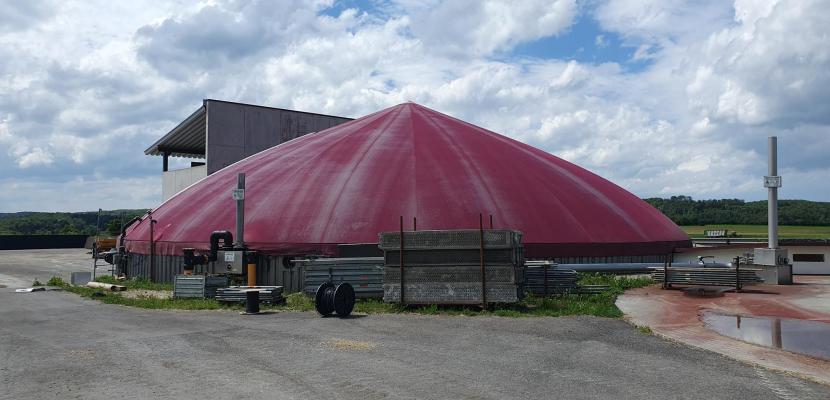
Regenerative Local Heating Network and Biogas Plants of Pfronstetten

About this good practice
Two biogas plants have been built in Pfronstetten-Aichelau since the 1990s. The plants were intended to create new income opportunities for the operators and surrounding farmers, increase energy security in the community and contribute to climate protection.
As electricity from biogas is climate-neutral, biogas plants avoid many climate-damaging greenhouse gases compared to electricity generation from fossil fuels. They also offer farmers in the region the opportunity to make some of their agricultural by-products available as renewable organic raw materials to supply these plants.
Over time, a local heating network has developed from the biogas plants, which uses the heat from the power plants to heat neighbouring residential buildings and a commercial building. This offers citizens a secure and climate-friendly energy and heating supply.
In 2024, the heat from the combined heat and power plants are used to supply a total of 14 neighbouring residential buildings and one business with local heating.
The Biogas Aichelau GmbH & Co KG is planning to further expand the heating network to connect more residents and businesses in the village to the system. The expansion plans are closely linked to the renewal of the heating pipelines. As part of the expansion, three more households, the new village community centre and new buildings of the nearby company are to be connected to the network. This will further increase the concept's contribution to climate protection targets.
Expert opinion
Resources needed
The operator and two full-time employees run the facilities in Pfronstetten. Regarding financial investments, no data is available. In 2023, the Ministry of the Environment Baden-Württemberg announced to financially support the expansion of the heating network in the municipality with 300,000 Euro.
Evidence of success
Biogas plants contribute to climate protection, as electricity and heat from biogas are 100 % climate neutral. Biogas plants can save up to 90 % of greenhouse gas emissions compared to fossil fuels, depending on the type of plant and substrate. The locals benefit from the biogas plants and the heating network, as the installations generate income for the operator, supply 14 households with heat, support 10 farmers who provide raw materials for the plants, and create new employment opportunities.
Potential for learning or transfer
Many villages in peripheral rural areas of central Europe have similar climatic conditions and economic structures to those on the Swabian-Alb. It can therefore be assumed that the concept observed in Pfronstetten-Aichelau can also be transferred to similar peripheral rural regions in central Europe.
In this context, it is to note that the use of biogas plants and local heating networks are currently subsidized in Germany. The approach is thus likely to be useful for countries and regions in which the use of renewable and climate-friendly energies is actively promoted.
Further information
Documents
D2E - Good Practice_Regenerative Local Heating Network and Biogas Plant of Pfronstetten_revised v5.0_final.pdf
Website
Good practice owner
You can contact the good practice owner below for more detailed information.
